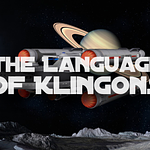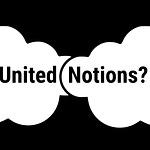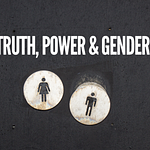by Trygve Taranger (reprinted with permission)
“Why do people think hierarchy is bad and equality is good?”
The short answer is because they haven’t thought things through. There can be numerous reasons for this, ranging from that they’ve spent their time thinking about something else, something more pressing, to that they’ve limited their analysis in some way. In any case, it’s not so simple that hierarchy is bad and equality good, or vice versa for that matter (though I would say this is closer to the truth).
What follows is far more than an answer to the question.
Hierarchy
Hierarchy is certainly both good and bad. It protects you, and tells you what to do, thereby shielding you from existential uncertainty as well as some risks. At the same time, it limits what you can do, and you better want to do what it tells you to do, or there could be hell to pay. That is, in a political analysis, which is blind to - for example - the hierarchical nature of all prioritization (much of which is built into our brains by natural selection, which should go without saying). Indeed, technically speaking, people can only think hierarchy is bad because they think hierarchy is good; otherwise, they would have no grounds for limiting their analysis. This is not to say that hierarchy is desirable. It’s more like it’s inevitable, which is a very different matter than suggesting that any particular hierarchy is functioning properly (which for that matter involves the demands we put on them, which may range from the overly overbearing to the unfairly demanding; one may wonder how much it’s reasonable to demand of a hierarchy that has to work in a world we know throws curveballs at people no matter whether we think they’re good or bad). When you notice all the bad things happening in a hierarchy, or maybe a couple of dozen hierarchies, it may be tempting to say that hierarchies are bad wholesale, and that therefore, equality - as the opposite of hierarchy - is entirely good, but to say that, you have to fail to appreciate that it’s by virtue of hierarchical organization that you can say that anything is good or bad in the first place. The problem is not “hierarchy”. You need to be more specific if you want to get anything fixed. (The same goes for “capitalism” too, and could probably stand as a general rule for problem-solving.)
Now, you can get away with just shutting those foundational hierarchies out of your analysis to say that hierarchies you’re less attached to are bad. You can even dream about (put on the top of your hierarchy of values) a world where one kind of hierarchy (the bad kind, obviously) is completely absent. What you can’t reasonably expect is to get rid of hierarchy. You can improve a hierarchy, but the fact that hierarchy is built into us means that a new one would come about if you tried to remove a hierarchy, and it would have to be pretty bad for the new one to be likely to be better. (It’s also worth considering this kind of like a jungian shadow, the part of yourself you’re not willing to admit exists, that doesn’t match who you’d like to be. If its existence is denied, you’re not paying attention to it to make sure it works out all right. These are ideal conditions for things to get worse, and I don’t see why it couldn’t apply to social planning. If there’s supposed to be no hierarchy, the resulting hierarchy is likely to be worse than what it replaced.) I refer back to the short answer.
Equality
Then there is “equality”. We live in societies built on a tradition that holds certain kinds of equality in high regard. I think there’s something to those kinds of equality, but as a general rule, equality is hostile to life. This is for precisely the same reason that hierarchy is built into us. We’re shaped by evolution to be capable of and desire things that contribute to reiterable reproduction. To get there, we need to act, that is, we need to treat things in ways that serve goals (that, initially, contribute to the reproduction), which is to say that we need to treat things as if they’re not equal. If nothing mattered to me, everything would be equal to me. It wouldn’t take long from there before I’d be dead, and the reiterable reproduction that we’re shaped for would end. Now, I don’t care about the reproduction-part. What I care about here is that the way I’m shaped would make it extremely uncomfortable to treat everything equally (especially for extended periods of time), and I don’t want that, as I’m not convinced that I’d be able to treat that equally to not that). It just seems senseless (I acknowledge that you can conclude that it’s good by means of a hierarchy, but then you’re not treating everything equally anymore, so there). Ultimately, everything is equal in death, but not in life. (In life, the closest you get is similar enough for the differences between some things to be overlooked in the pursuit of a goal.)
Seeing this, it’s more peculiar whenever it is suggested that some kind of equality is good than the opposite, and indeed, in the post-enlightenment judeo-christian cultural environment, it is held that some kinds of equality are good. It may have started with equality under God, as beings of the Imago Dei, sharing a kind of kinship with God. This is referenced as early as in the first tale of the first book of the Bible, making it simply ancient (it’s worth noting in this context that it’s not suggested to be exclusive to men, even though some readings of the following tale have led people to think lesser of women). In any case, this notion of human equality has been secularized. In the process, the practices of early christian communities, wherein everything was shared in the spirit of the Holy Ghost (as they no doubt would’ve said), somehow came along. They may even have provided the ground on which later notions of communal sharing and decision-making in the form of socialism and communism grew. Either way, with loss of faith in God, the image of God as foundational appeal disappeared. Yet, the emphasis on some kinds of equality persisted, most famously in the rallying cry of the French Revolution: liberty, equality, fraternity. The emphasis moved from the image of God in Man to Man himself (I chose these words for it to sound better) in humanism, and this was later codified in human rights. First, as natural rights, latent and inalienable in all humans, and to be respected by everyone sensible. Then, as afforded (let’s call them “cultural” rights, that (sensible) people agreed it was desirable for everyone to have, but that might be difficult (or even - for now - impossible) to give people for the simple reason that they weren’t themselves latent, and would have to be given (which means that someone has to spend resources to give it to them as well as offer resources of their own so that there’s something to give, the question being “who?”). Appeals to rationality were frequent (In his answer, Paul Trejo points out that this appeal at least traces back to the ancient Greeks), to the point where a statue of the “Goddess of Reason” was placed in the Notre Dame during the French Revolution, and there may even have been a general notion that people were rational at their core, which would allow for everyone to coexist in a system kind of like what one might dream of with Kant’s categorical imperative, and which one could appeal to as a reason to value human rights, both natural and cultural. Since then, in our era of general disillusionment, it has become increasingly clear (as Hume was quick to point out) that our rational faculties are more servant than master, which severely injures this appeal.
Hierarchy and Equality
As long as one accepts the existence of hierarchy as such as inevitable, (as indeed most people throughout time appear to have done) it’s necessary to appeal to something valued in the hierarchy to get people on board with whatever one is advocating for. Without a clear idea of how what is advocated fits into the hierarchy, it’s basically impossible to get people who don’t already agree with you on board (you may be able to tyrannize them into compliance, but not real agreement). We have effectively inherited the value of human equality from our predecessors, but that doesn’t mean we have inherited their arguments; Many of the arguments don’t hold up to modern levels of scrutiny, which is highly valued outside of postmodern criticism. The foundation for this value is fairly obvious: we wan’t to build on solid ground (and in this way, we’re still christian, maybe even more so than many self-described christians), because we want to be able to weather whatever storms may come our way. (Following this christian parable, postmodern criticism rejects the notion that there’s anything but sand.) However, it leaves us with the problem of figuring out what this human equality is if we want to integrate it into our hierarchies, to determine if it’s even desirable (to reiterate: I think it is when - only when - properly understood).
Like most answers, it should be obvious once identified, but not so easy to identify in the first place. Retaining the valuation of human equality without an updated (satisfying) answer leaves fertile soil for the development of a moral taboo in protection of our intuitions, and the existence of such taboos today is indisputable as far as I’m concerned; why else would the reactions to the mere mention of the statistically entirely-to-be-expected different average IQs of different populations (who have faced different selection-pressures in the past) be so visceral? People worry that those who bring it up do so to undermine human equality.
A consequence of such taboos is that our mental knives grow dull on the taboo topics. We value equality, but we don’t have good defenses of this value, and we know it, so we can’t talk much about it for fear of people rejecting it based on our poor defense. Even as people have agreed on behalf of everyone (unilaterally) that breaches of human rights (again: a modern expression of this value) are atrocious, it may have been more out of disgust than out of a non-intuitive argument. And we should remember: this isn’t the first time the defense of human equality has required an update to its arguments, but simply the most recent in a chain that stretches back at least to the image of God in the face of a loss of faith. At each point in this chain, people have stayed behind, refusing to update their defenses of human equality because they still accept the old one. It’s anything but a unitary process, because humans are different in far more ways than one, including location and cultural surroundings (do all cultures value human equality?). Without a proper discussion of the topic, opponents of this value can get the upper hand, and people who inherit the value develop their conception of human equality and the grounding appeal increasingly independently underneath a taboo. In the end, they may be talking about completely different (even antithetical) things (and consequently, grounding appeals), only realizing it as they attempt to implement them on a larger scale and come into conflict. The contemporary discussion about equality of opportunity contra equality of outcome (where I think equality before the law is the best we can hope for in pursuit of the former) that has spurred in (actually) liberal circles is an example of this. Again, both these positions by necessity accept hierarchy, but some people ignore the hierarchies they accept.
The Good Kind of Equality
I probably wouldn’t dare to write this if I didn’t think I was on to an answer. However, I don’t want to take credit for it. What follows is almost said in Peterson’s Maps of Meaning, and I’ve read other authors that I would say have been on the same track that I won’t mention here to avoid sounding all too pretentious. So, in what way that actually matters are we equal, seeing as we’re obviously different in an obscene number of ways?
We, humans, all have the capacity to leave, join and update groups. Since at least some of us (somewhat predictably considering psychometrics) are able to innovate, and people with different experiences have different toolkits for innovation, our potential capacity to communicate (be it through imitable action, episodic representations of imitable action or language - or any combination of the three) makes every individual a potential savior of everything any other individual cares about. This, I believe, is the equality we should treasure and respect, and that we should ground our notions of human rights in. I think it’s far more durable than an appeal to physical equality (which is nonsense), or an appeal to rationality (which is nice, but empirically flawed), or one that hinges on belief in God (which people have plenty of reasons to doubt).
In the Hold my Drink - navigating culture with a chaser of civility, and Counterweight podcast, Episode 71, Jeff speaks with Trygve Taranger, a young musician from Norway interested in the why of things. Trygve gives us insight into how Critical Social Justice has appeared in Norway and offers thoughts on the origins and dissemination of this ideology beyond the shores of the United States. All discussed with a chaser of civility, of course, and some kava tea.
Hold my Drink welcomes all people with all kinds of beverages to join us as we explore the truths of a chaotic and beautiful world, together.
Find us on Apple Podcasts and Spotify, or watch the conversation unfold on YouTube, and follow us on Facebook, Twitter and Instagram.
What Trygve is reading:
Heroes, Stephen Fry
The Creative Mind: Myths and Mechanisms, Margaret Boden
Cultural Selection, Agner Fog
The Eye of the World, Robert Jordan
48 Laws of Power, Robert Greene
What Jeff is reading:
Anatomy of Criticism, Northrup Frye
The Mirror and the Lamp, M.H. Abrams
and watching
Spending the War Without You, Laurie Anderson
Nuking Social Constructionism, King Crocoduck
I have attended two college campuses in Norway, but one for only about a month. I have taken in-person courses on music, religion, media and now on pedagogy. I have also participated in the student-democracy and been part of establishing what I hope will be a regular biweekly event designed around the humanistic ideal of free speech and thought at one of these campuses for many more years after I left the campus of Volda University College (VUC). Over the 5 years I was there I was also at one point elected by the student democracy to represent it in the FOU (a research committee). At numerous occasions over those years I made my objections to the far left clear; When I originally decided to get into student politics (and got elected) at VUC it was on the premise that I would be someone taking it seriously with a focus on individuals.
















Ep. 71: Critical Social Justice: A View from Norway | Trygve Taranger